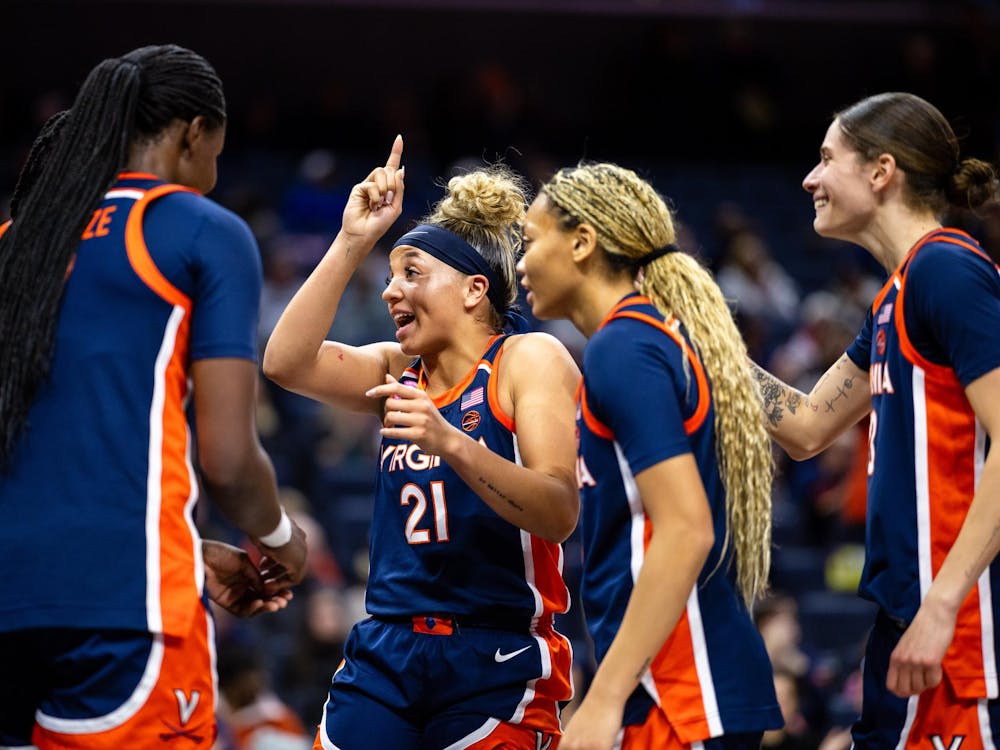Despite falling to Minnesota in the final minute of the championship game of the Paradise Jam Saturday, the women's basketball season has soared out of the gate.
The team competed in the annual tournament in the Virgin Islands during Thanksgiving Break, compiling a 1-1 record while there.
Virginia's current record stands at 3-1, as the team downed George Washington to open the season and Wright State in its home opener before heading to the Caribbean. There, the Cavaliers defeated the Alabama Crimson Tide in the first round.
Each of Virginia's victories thus far has been by a convincing margin. The team defeated then-ranked George Washington 66-53, Wright State 74-56, and Alabama 69-48.
The reasons for this success are no mystery. The Cavaliers have limited their turnovers and outworked their opponents on both the offensive and defensive glass.
"I think slowing [it] down a little bit, watching the whole court, and just knowing where other people are going to be [keeps turnovers to a minimum]," Sharnee Zoll said.
So far this season, the sophomore point guard Zoll has compiled a solid 1.64 assist-turnover ratio, handing out 18 assists while only committing 11 turnovers. As a team, Virginia has yielded 51 turnovers but has forced other teams into 78.
Virginia's frontcourt has been similarly impressive when crashing the boards. Two players are averaging at least seven rebounds so far, with Lyndra Littles posting 7.0 rpg and Tiffany Sardin collecting 7.5 rpg. In total, Virginia has outrebounded its opponents 145-139 thus far. Sardin pointed to the team's collective emphasis on the fundamentals of rebounding as the reason why the Cavaliers have been so successful early on.
"We put a lot of focus on that in practice because most of the teams we're going to face this year are a lot bigger than us," Sardin said. "[With solid] boxing out, you don't have to be a certain height to get the rebound."
One factor that might dampen the spirits of many teams is Virginia's perceived lack of depth on the roster. The team only goes seven players deep, as evidenced in the Minnesota game, where those seven players accounted for all but 11 of the 200 minutes played. Sardin, however, sees this potential stumbling point as a motivating force.
"I don't see that as a [negative] effect," Sardin said. "It gives you the extra push to work hard and do things right and go out and compete every night."
Still, while knowing that there is little margin for error can drive a team, the sooner the underclassmen are able to offer minutes off the bench, the better off the Cavaliers will be in the long run.
Zoll noted that the young group has made significant strides. Littles, a freshman from Washington, D.C., already has emerged as a major contributor and is averaging 20.8 minutes per game. None of her other classmates, though, are averaging more than eight minutes per game.
"I think they've come a long way since the first day of practice," Zoll said. "They're still getting acclimated to the system, but we're helping them as much as we can."






